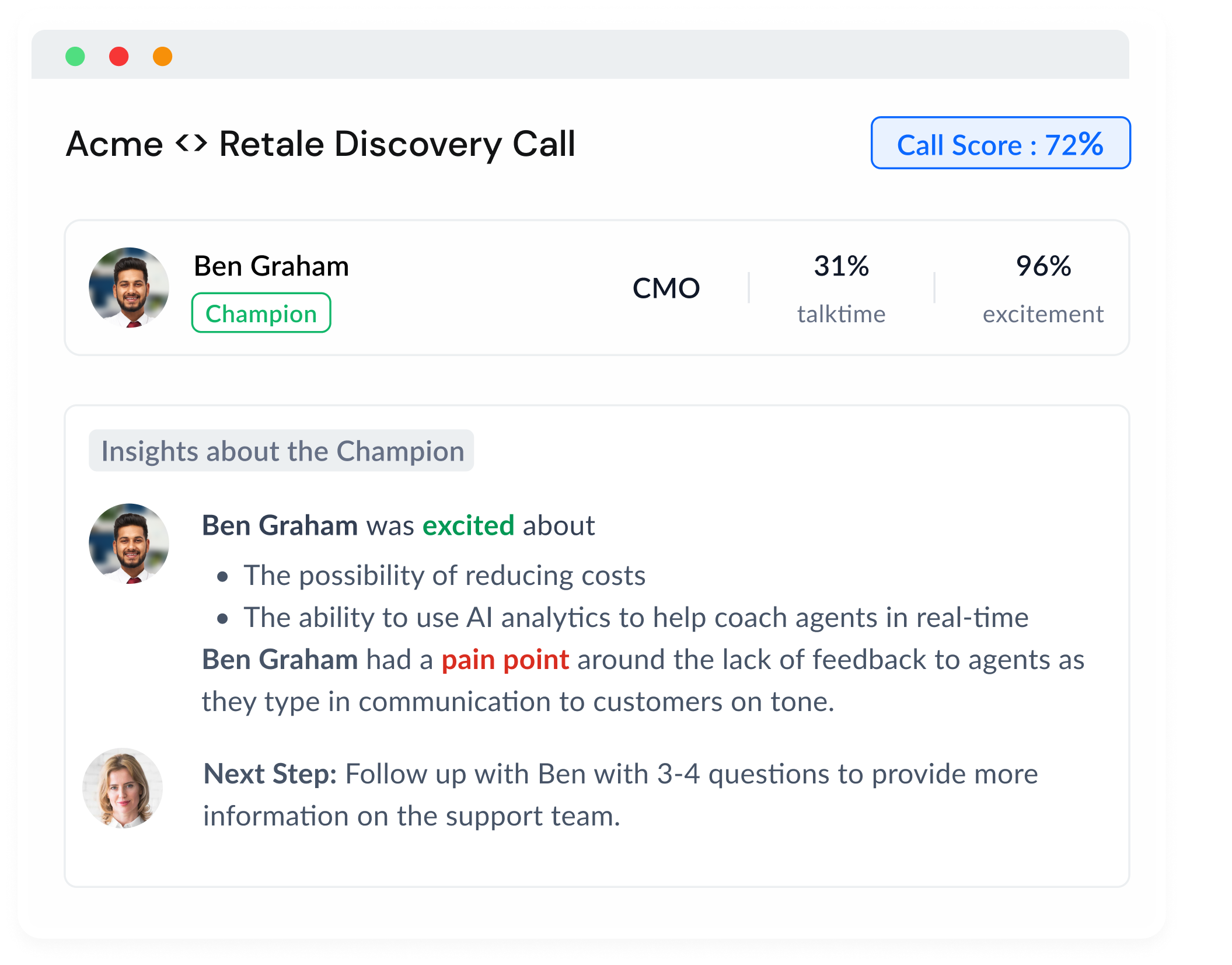If you've ever found yourself marveling at the sales success of top SaaS companies, you might be wondering what their secret sauce is. Well, it's time to let you in on a little-known fact: one of the key ingredients of their success lies in having a well-defined Ideal Customer Profile (ICP). In this blog post, we'll explore the art of crafting an ICP, revealing how it can revolutionize your sales and marketing efforts, boost lead generation, and skyrocket your closing rates. So, buckle up and get ready to become the Picasso of sales as we paint a masterpiece together!
What is an Ideal Customer Profile (ICP)?
An Ideal Customer Profile, or ICP, is a semi-fictional representation of your dream customer. It outlines the key characteristics, attributes, and traits that make up the perfect fit for your product or service. The ICP serves as a guiding star for your sales and marketing teams, helping them identify, target, and engage with the prospects most likely to convert into loyal, high-value customers.
The benefits of having a well-defined ICP are manifold. For one, it helps your sales reps prioritize their time and energy by focusing on the accounts with the highest potential for success. Secondly, it enables your marketing team to craft laser-focused campaigns that resonate with your target audience, leading to higher engagement and conversion rates. In essence, a well-crafted ICP is like a treasure map, leading your sales and marketing teams straight to the proverbial pot of gold.
The Relevance of ICP for Your Business
You might be wondering, "Why should I bother with an ICP? Can't I just wing it and hope for the best?" Well, as tempting as that might sound, having a well-defined ICP is crucial for the success of your business, particularly when it comes to your go-to-market (GTM) strategy.
An ICP plays a pivotal role in aligning your sales and marketing efforts. By establishing a clear, shared understanding of your target customer, your teams can work in tandem to attract, engage, and convert the most promising leads. This alignment not only streamlines your GTM strategy but also helps prevent wasted resources on pursuing low-value prospects that are unlikely to yield significant returns.
Moreover, a well-defined ICP allows you to tailor your messaging and value proposition to the specific needs and pain points of your target audience. This leads to more compelling and relevant communications, which in turn can help you stand out from the competition and win the hearts (and wallets) of your ideal customers.
In summary, an ICP is an indispensable tool for any SaaS business looking to optimize their sales and marketing efforts, maximize their return on investment, and ultimately, achieve greater success in the competitive world of software sales.
Crafting Your ICP: Key Elements to Consider
Now that we've established the importance of an ICP, let's dive into the nitty-gritty of crafting one for your business. Here are some key elements to consider as you create your own masterpiece:
- Industry and company size: Identifying the industries and company sizes that are most likely to benefit from your product or service is a crucial first step in defining your ICP. For example, if you offer a CRM solution tailored to small and medium-sized businesses, your ICP should reflect this focus. Our blog post on Pipedrive vs. Hubspot provides a great example of how different CRMs cater to specific industry segments and company sizes.
- Geographic location: Depending on your product or service, the geographic location of your target customers may be an important factor. For instance, if your product is designed to address region-specific compliance requirements, your ICP should target companies operating in those regions.
- Technological maturity: Your ideal customers may have a certain level of technological maturity, making them more inclined to adopt and benefit from your solution. Consider whether your target customers are early adopters, tech-savvy, or perhaps more traditional in their approach to technology.
- Decision-makers and influencers: Identifying the key decision-makers and influencers within your target companies is essential for crafting targeted sales and marketing campaigns. These individuals may hold various roles, such as C-suite executives, IT managers, or sales leaders, depending on the nature of your product or service.
- Pain points and challenges: Understanding the unique pain points and challenges faced by your ideal customers is crucial for tailoring your messaging and value proposition. By addressing these pain points in your sales and marketing materials, you can demonstrate a deep understanding of your customers' needs and position your solution as the perfect remedy.
How Specific Should Your ICP Be?
You might be wondering, "How specific should my ICP be? Should I narrow it down to the most minute details, or should I keep it broad and encompassing?" The answer lies in striking the right balance between specificity and flexibility.
An overly broad ICP can lead to a scattershot approach, diluting your sales and marketing efforts and ultimately yielding suboptimal results. On the other hand, an ICP that's too narrow can limit your opportunities and hinder your growth. The key is to define an ICP that's specific enough to provide clear guidance for your sales and marketing teams but flexible enough to allow for the pursuit of promising opportunities that may not fit the mold perfectly.
One way to strike this balance is by adopting a tiered approach to your ICP. You can create a primary ICP, which represents your absolute dream customers, and a secondary ICP, which includes prospects that are still a good fit but may not tick all the boxes of your primary ICP. This approach allows you to prioritize your efforts while still maintaining the flexibility to capitalize on high-potential opportunities that may lie outside your primary ICP.
The Power of ICPs: Better Lead Generation and Higher Closing Rates
Having a well-defined ICP isn't just about streamlining your sales and marketing efforts; it's also about driving tangible results for your business. By targeting the right customers with the right messaging, you can boost your lead generation efforts and increase your closing rates.
A solid ICP enables your sales reps to focus on the accounts with the highest likelihood of success, ensuring that they spend their time andenergy on the most promising opportunities. This targeted approach can lead to higher conversion rates, as your sales team will be speaking directly to the needs and pain points of your ideal customers. Plus, with a clear ICP in place, your marketing team can create campaigns that resonate with your target audience, driving more qualified leads into your sales funnel.
ICP in Action: Examples of Success
Now that we've discussed the theory behind ICPs, let's take a look at some real-life examples of companies that have successfully leveraged their ICPs to drive growth and success.
Example 1: The Case of the Time-Saving Sales Tool
Meet Jane, the founder of a SaaS company that provides a time-saving sales tool designed specifically for small and medium-sized businesses in the software industry. Jane recognized that her ideal customers were facing a unique set of challenges, such as juggling multiple responsibilities, navigating complex sales cycles, and dealing with limited resources.
By creating an ICP that focused on these specific pain points, Jane was able to craft targeted messaging that resonated with her ideal customers. This resulted in a surge of high-quality leads and a significant increase in her company's close rate. In fact, her sales team was able to close 30% more deals within just a few months of implementing their new ICP-driven approach.
Example 2: The Data-Driven Marketing Agency
Sam, the founder of a data-driven marketing agency, knew that his company's services were particularly valuable to B2B SaaS companies in the growth stage. These companies often had access to large amounts of data but lacked the expertise and resources to fully capitalize on it. Sam's agency was the perfect solution to this problem, offering expert data analysis and marketing strategy development.
Sam's ICP included details about the size, industry, and growth stage of his target customers, as well as their specific pain points related to data utilization. By targeting this specific ICP, Sam's marketing campaigns attracted a higher percentage of qualified leads, and his sales team reported a significant uptick in deal closures.
Example 3: The Compliance Crusader
Linda, a founder of a SaaS company specializing in region-specific compliance solutions, understood that her product was uniquely suited to companies operating in heavily regulated industries within specific geographic locations. Her ICP not only included details about the industries and locations of her target customers but also their unique compliance challenges.
Armed with this detailed ICP, Linda's sales team was able to craft highly targeted sales pitches that addressed the specific needs of their ideal customers. As a result, they experienced a remarkable increase in their conversion rates, and the company saw a boost in revenue.
These examples illustrate the power of a well-defined ICP in driving tangible results for your business. By crafting an ICP that captures the unique characteristics, needs, and pain points of your ideal customers, you can ensure that your sales and marketing efforts are focused on the right prospects, ultimately leading to better lead generation, higher close rates, and sustainable growth.
Unlocking the Full Potential of Your ICP
Once you've defined your ICP, it's time to integrate it into your sales outreach and lead generation efforts. Here are some tips to help you get the most out of your ICP:
- Align your sales and marketing teams: Ensure that both your sales and marketing teams are on the same page when it comes to your ICP. This alignment will help you create consistent messaging and campaigns that resonate with your target audience.
- Personalize your outreach: Use your ICP to craft tailored messaging for your prospects. Speak directly to their pain points and demonstrate how your product can help solve their unique challenges.
- Segment your leads: Categorize your leads based on how closely they align with your ICP. This will help you prioritize your sales outreach efforts and focus on the most promising opportunities.
By putting your ICP at the heart of your sales and marketing efforts, you'll see a noticeable impact on your closing rates and overall sales success. Prospects that closely align with your ICP are more likely to convert, making your sales process more efficient and effective.
Continuously Refining Your ICP: A Never-Ending Journey
Your ICP shouldn't be a static document. As your business evolves and the market landscape changes, it's crucial to regularly review and update your ICP to maintain its relevance and effectiveness. Here are some guidelines on when and how to adjust your ICP:
- Stay attuned to market changes: Keep an eye on industry trends, emerging pain points, and competitive landscape shifts. These factors can impact your ICP and require adjustments to stay ahead of the game.
- Learn from your sales data: Analyze your sales data to identify patterns and trends that may signal the need for an ICP update. For example, if you notice that a certain industry segment is converting at a higher rate, you may want to refine your ICP to focus on that segment.
- Review your ICP regularly: Set a schedule to review your ICP at least once a year, or more frequently if your business is rapidly evolving. This will ensure that your ICP remains a valuable tool in guiding your sales and marketing efforts.
In conclusion, creating an ICP for your sales team is a critical component of a successful go-to-market strategy. It enables you to focus your efforts on the most promising prospects, streamline your sales and marketing efforts, and ultimately drive better results for your business. So, don't wait – start crafting your ICP today and watch your sales soar! And remember, Sybill is here to help you every step of the way – check out our AI sales coach to discover how we can assist you in refining your sales process and closing more deals.















.png)





